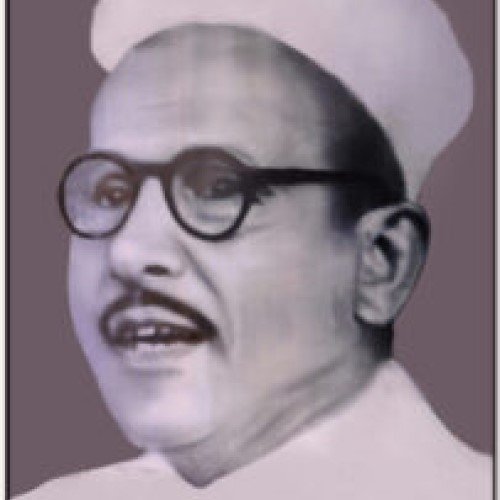Early Life
B. Pocker Sahib Bahadur was born in 1890. He graduated from Madras Law College in 1915 and enrolled himself as an advocate at the Madras High Court in 1917.
Pocker Sahib’s political career began in 1919, when he submitted a memorandum to Lord Montagu regarding special constituencies for Muslims. The reforms proposed by Lord Montagu formed the basis of the Government of India Act, 1919.
He was a leader of the Khilafat struggle in India, and led the relief efforts for people affected by the Mapilla revolt of 1921. He also worked towards empowering Mapillas from the Malabar region through the South Indian Muslim Education Society.
From 1930-1936, Pocker served as the Parliament Party Secretary of the United Nationalist Party in Madras. He later joined the Muslim League.
Contribution to Constitution Making
Pocker was elected to the Constituent Assembly from Madras on a Muslim League ticket. He was one of 28 members of the Muslim League who chose to remain in India after partition. In the Assembly, he intervened on a number of debates including on the Uniform Civil Code, liquor ban, and separate electorates.
Later Contributions
Unlike other Muslim League members who joined the Indian Union Muslim League after partition, Pocker remained with the former. He won election to the Lok Sabha in 1952 on a Madras Muslim League ticket. In 1957 he was elected again as an independent candidate from Manjeri constituency. As an MP, he spearheaded the effort to exempt Muslims from the Special Marriage Act, 1954.
Pocker was also one of the founding members of the Kerala Muslim Educational Association in 1958.
He passed away on 29th July 1965.
- Pocker Sahib advocated for English to be the official language of the Union along with Hindustani.
- During the debates on the Directive Principles of State Policy, he spoke in favour of the prohibition of liquor. He also opposed the proposal for the Uniform Civil Code, stating that each community had the right to follow their personal laws regarding marriage, inheritance, divorce, etc.
- He made a case for separate electorates to protect the rights of minorities, as reservations were not a viable option.

